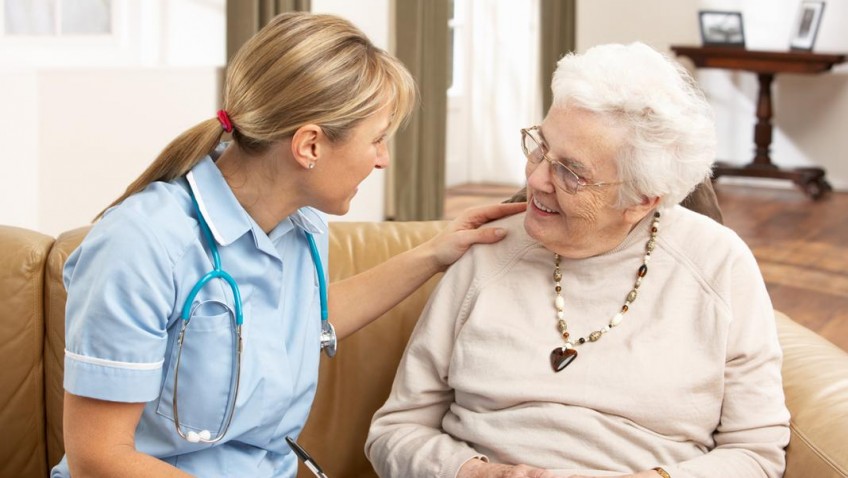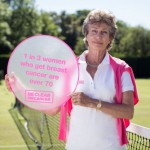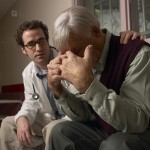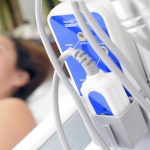Public Health England has launched a nationwide ‘Be Clear on Cancer’ campaign aimed at women aged 70 and over to drive awareness of the risk of breast cancer amongst this age group and to increase their knowledge of lesser-known breast cancer symptoms.
- Approximately 30% of women diagnosed with breast cancer report a symptom other than a lump
- However, when asked to name symptoms of breast cancer, only half of women aged 70 and over (48%) could name a symptom aside from a lump
- One in three women diagnosed with breast cancer each year are aged 70 and over
- Latest Be Clear on Cancer campaign urges women over 70 to be aware of breast cancer symptoms
- Around 15 women aged 70 and over die from breast cancer in England every day
Around 13,400 women aged 70 and over are diagnosed with breast cancer each year, accounting for a third of all breast cancer cases.
Despite older women being at an increased risk of breast cancer, they are also more likely to delay going to their GP with breast cancer symptoms. This year’s campaign activity reinforces the message ‘don’t assume you’re past it’, urging older women to visit their doctor straight away if they notice any unusual or persistent changes to their breasts such as a lump or a change to a nipple or to the skin or the shape of a breast.
The campaign also encourages carers and family or friends of women over 70 to be breast aware and talk to them about the signs and symptoms of breast cancer, and if they have any signs encourage them to see their doctor.
Breast cancer is the most common cancer in women in England, with around 41,200 women diagnosed every year. National figures show that around 9,500 women die from breast cancer 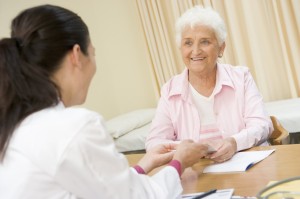 each year and over half of these are women aged 70 and over (5,400). This equates to around 15 women aged 70 and over dying from breast cancer in England every day.
each year and over half of these are women aged 70 and over (5,400). This equates to around 15 women aged 70 and over dying from breast cancer in England every day.
Early diagnosis of breast cancer is crucial and means treatment is more likely to be successful. If breast cancer is diagnosed at the earliest stage in women aged 70 and over, 93% will live for at least another five years. This figure drops to just 13% for those diagnosed at the most advanced stage.
Professor Dame Sally Davies, Chief Medical Officer, comments:
“You are never too old to get breast cancer. It is not always a lump and women should look out for any changes in the shape of the breast, a change to a nipple or to the skin.
“Spotting the signs of cancer early is very important so if women are concerned about any breast cancer symptoms they should contact their GP straight away.”
Diana Moran, Health Writer and International Fitness Expert comments:
“I know first-hand the effects that breast cancer can have. I was 47 when I was diagnosed with breast cancer and my advice hasn’t changed – get to know your breasts and recognise if there are any changes. The older you get, the more important it is to be aware of your body. You’ll be as surprised as I was to hear that one in three women who are diagnosed with breast cancer are over 70.
Richard Sutton, Breast cancer surgeon at Royal United Hospital Bath, says:
“I often hear my patients say how they delayed going to their GP. They may not think their symptom is serious; they may be embarrassed or didn’t want to waste the GPs time. Most people are aware that a lump in the breast could be a symptom of cancer, but they don’t know that changes to the skin of the breast or the nipple could also be signs of cancer. As a specialist surgeon it concerns me that the awareness of the importance of these symptoms is even lower amongst older women. The risk of developing breast cancer increases with age, so don’t dismiss any persistent or unusual changes to your breasts as a sign of ageing, speak to your GP – finding breast cancer early makes it more treatable and could save your life.”


